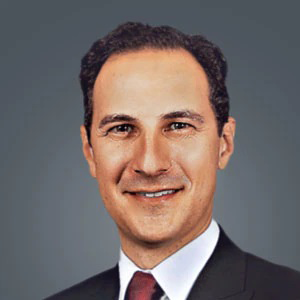
3 Ways to Help Businesses Manage Market Uncertainty
Amid mounting regulatory scrutiny, heightened competition and rising interest rates, senior bank executives are increasingly looking to replace income from Paycheck Protection Program loans, overdrafts and ATM fees, and mortgage originations with other sources of revenue. The right capital markets solutions can enable banks of all sizes to better serve their business customers in times of financial uncertainty, while growing noninterest income.
Economic and geopolitical conditions have created significant market volatility. According to Nasdaq Market Link, since the beginning of the year through June 30, the Federal Reserve lifted rates 150 basis points, and the 10-year Treasury yielded between 1.63% and 3.49%. Wholesale gasoline prices traded between $2.26 and $4.28 per gallon during the same time span. Corn prices rose by as much as 39% from the start of the year, and aluminum prices increased 31% from January 1 but finished down 9% by the end of June. Meanwhile, as of June 30, the U.S. dollar index has strengthened 11% against major currencies from the start of the year.
Instead of worrying about interest rate changes, commodity-based input price adjustments or the changing value of the U.S. dollar, your customers want to focus on their core business competencies. By mitigating these risks with capital market solutions, banks can balance their business customers’ needs for certainty with their own desire to grow noninterest income. Here are three examples:
Interest Rate Hedging
With expectations for future rate hikes, many commercial borrowers prefer fixed rate financing for interest rate certainty. Yet many banks prefer floating rate payments that benefit from rising rates. Both can achieve the institution’s goals. A bank can provide a floating rate loan to its borrower, coupled with an interest rate hedge to mitigate risk. The bank can offset the hedge with a swap dealer and potentially book noninterest income.
Commodity Price Hedging
Many commercial customers – including manufacturers, distributors and retailers – have exposure to various price risks related to energy, agriculture or metals. These companies may work with a commodities futures broker to hedge these risks but could be subject to minimum contract sizes and inflexible contract maturity dates. Today, there are swap dealers willing to provide customized, over-the-counter commodity hedges to banks that they can pass down to their customers. The business mitigates its specific commodity price risk, while the bank generates noninterest income on the offsetting transaction.
International Payments and Foreign Exchange Hedging
Since 76% of companies that conduct business overseas have fewer than 20 employees, according to the U.S. Census Bureau, there is a good chance your business customers engage in international trade. While some choose to hedge the risk of adverse foreign exchange movements, all have international payment needs. Banks can better serve these companies by offering access to competitive exchange rates along with foreign exchange hedging tools. In turn, banks can potentially book noninterest income by leveraging a swap dealer for offsetting trades.
Successful banks meet the needs of their customers in any market environment. During periods of significant market volatility, businesses often prefer interest rate, commodity price or foreign exchange rate certainty. Banks of all sizes can offer these capital markets solutions to their clients, offset risks with swap dealers and potentially generate additional income.


